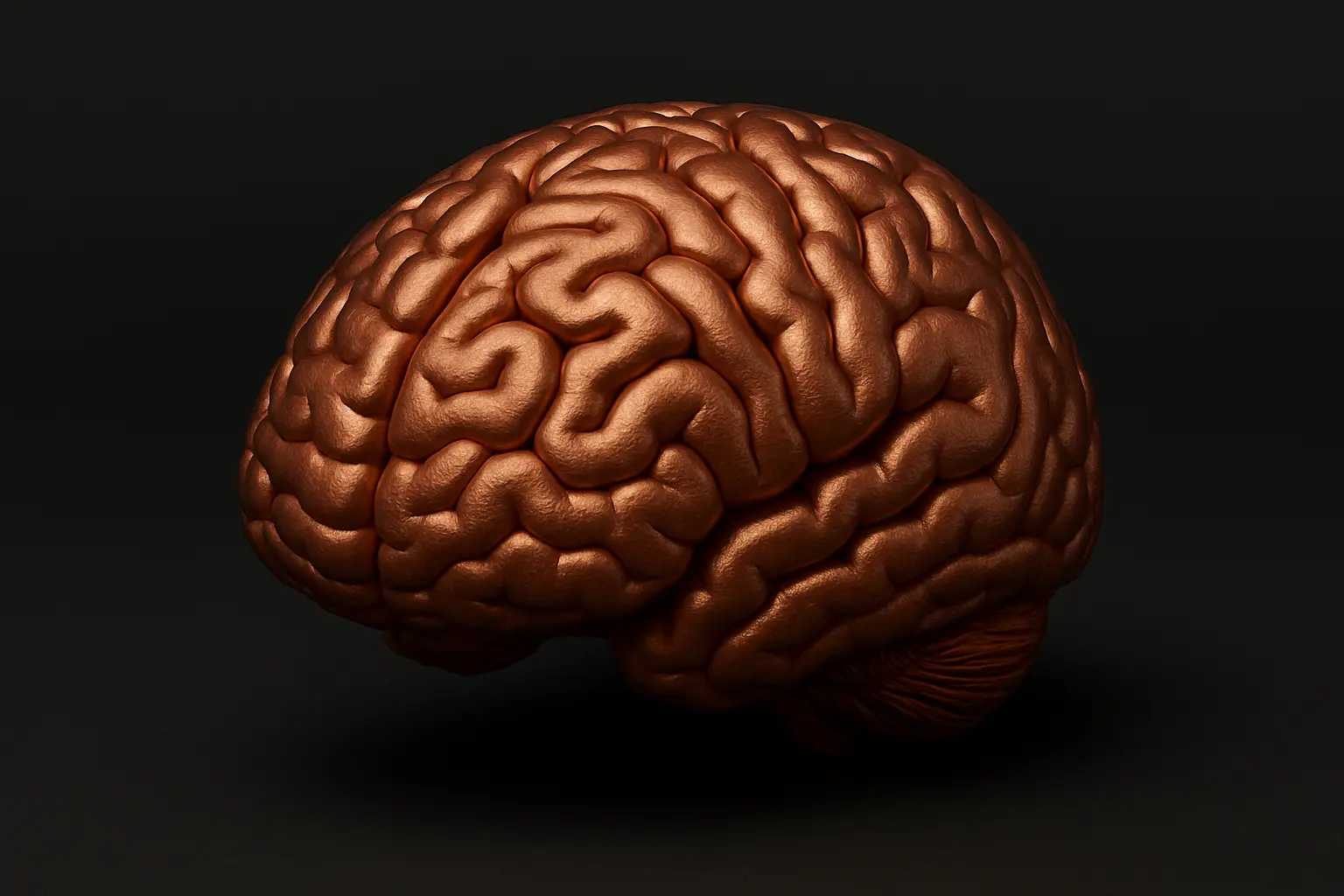As the world’s population ages, the challenge of maintaining cognitive health grows ever more urgent. Dementia cases, already affecting millions, are projected to reach 152.8 million globally by 2050. Among the many threads scientists are following, nutrition—and specifically the role of micronutrients—has drawn increasing attention. Copper, a trace element essential for brain function, occupies a particularly complex place in this picture. Too little can impair neurological development and function; too much may trigger oxidative stress and neurodegeneration. Understanding where the sweet spot lies could inform strategies for protecting cognitive health in later life.
Researchers from The Fourth Hospital of Hebei Medical University explored this question by analyzing data from 2 420 Americans aged 60 and over who took part in the U.S. National Health and Nutrition Examination Survey (NHANES) between 2011 and 2014. The study assessed dietary copper intake using two 24-hour dietary recalls and evaluated cognitive performance through four well-established tests: the Digit Symbol Substitution Test (DSST), the Animal Fluency Test (AFT), and immediate and delayed verbal recall tasks from the Consortium to Establish a Registry for Alzheimer’s Disease (CERAD). A global cognition “Z score” combined results from all four.
After adjusting for a wide range of demographic, lifestyle, and health factors, the analysis revealed a clear positive link between higher copper intake and better cognitive scores. Participants in the highest quartile of copper consumption—1.44 mg/day or more—scored on average 3.8 points higher on the DSST and 1.23 points higher on the AFT than those in the lowest quartile, with similar but smaller gains in verbal recall and overall Z scores. Interestingly, the relationship was not simply linear. Using smooth spline analysis, the team identified an “inverted L-shaped” association for the DSST, AFT, and Z score, with benefits plateauing beyond intake thresholds of about 1.22–1.63 mg/day. In other words, cognitive advantages increased with copper intake up to a point, but did not continue to climb at higher levels.
Subgroup analyses found the link between copper and cognition to be broadly consistent across gender, age, and health status, with one notable exception: older adults with a history of stroke saw a more pronounced cognitive benefit from higher copper intake, particularly in global cognition scores. This dovetails with earlier research suggesting copper may help mitigate oxidative stress and inflammation after stroke, partly by supporting antioxidant enzymes such as Cu/Zn superoxide dismutase and aiding neurorepair processes like angiogenesis and neurogenesis.
The authors note that copper’s biological role is multifaceted. It is a cofactor for enzymes critical in neurotransmitter synthesis, cellular energy production, and antioxidant defense. Imbalances in copper homeostasis have been linked to neurodegenerative conditions, including Alzheimer’s disease, where both deficiency and excess appear harmful. Other dietary factors—such as fat and saturated fatty acid intake—may influence how copper affects cognition, highlighting the complexity of nutritional interactions.
Still, the researchers caution that their findings come from a cross-sectional study, which cannot prove cause and effect. Dietary data relied on self-reported recalls, leaving room for misreporting, and copper intake tends to track with other nutrients and dietary patterns that could influence cognition. More rigorous longitudinal studies and randomized controlled trials will be needed to determine whether adjusting copper intake can truly help preserve brain health in older adults.
The idea of balance stands out in this study—how the same element can be essential yet, in excess, potentially harmful. The threshold patterns are especially compelling, suggesting an “optimal zone” for brain health that is neither too little nor too much. The stronger effect among stroke survivors is also intriguing, raising the possibility that targeted nutritional strategies could play a role in neurorehabilitation. While copper is unlikely to be a magic bullet, understanding its role could help refine a broader approach to healthy cognitive aging.
Sources
Original article: “Association between dietary copper intake and cognitive function in American older adults: NHANES 2011–2014,” Weiai Jia, Kangsheng Zhu, Jingpu Shi, Fangfang Yong, Scientific Reports, 7 July 2025. https://doi.org/10.1038/s41598-025-09280-9
